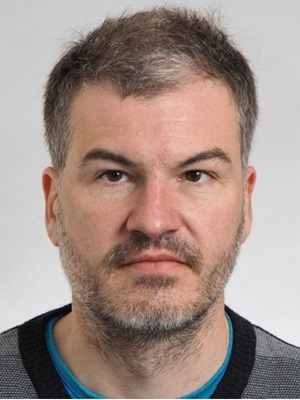Soutenance de thèse Philippe Glass
 |
M. Philippe Glass soutiendra en anglais, en vue de l'obtention du grade de docteur ès sciences de la société, mention systèmes d'information, sa thèse intitulée: Coordination model and digital twins for managing energy consumption and production in a smart grid Date: Vendredi 20 juin 2025 à 10h00 |
Jury :
- Prof. Giovanna Di Marzo Serugendo, directrice de thèse, Université de Genève
- Prof. Jean-Henry Morin, président du jury, Université de Genève
- Prof. Emmanuel Fragnière, HES Valais
- Prof. Davide Calvaresi, Université de Genève
- Prof. Jose Luis Fernandez-Marquez, Université de Genève
Abstract:
Smart grids play a key role for energy management directly supporting the socio-ecological transition of neighbourhoods. This research provides the design of a coordination model to enable the management and exchange of electrical energy between producers and consumers at a microgrid level. The coordination model proposed, which derives from the SAPERE coordination model, allows intelligent digital twins to interact and generate data on the fly to meet different needs in real time. We have designed prosumer digital twins, which autonomously generate supply contracts in the form of a transaction, and supervisor digital twins, which regulate energy overflow in real time and proactively using predictions generated by a learning model. The interactions of digital twins through the coordination model not only generate energy exchanges between prosumers but also enable peak shaving - to avoid energy overflows. We have also adapted and used the coordination model to integrate two decentralised approaches to distributed learning applied to a micro-network: the Gossip Federated Learning approach, which consists of exchanging homogeneous learning models between neighbouring nodes, and the Gossip Ensemble Learning approach, which consists of exchanging prediction results between neighbouring nodes, possibly obtained from heterogeneous learning models. The experimentations, based on real data, show that the combination of a coordination model and intelligent digital twins makes it possible to implement and operate these two purely decentralised learning approaches. The results obtained on the predictions confirm that these two implemented approaches can improve the efficiency of learning on the scale of a microgrid, while reducing the congestion caused by data exchanges.
Because a microgrid project involves major changes and efforts on the part of users, it has no chance of succeeding unless the aspirations and fears of potential users are thoroughly taken into account: these can be collected and then used to define social acceptance criteria to be taken into account when implementing the project. A group from the same research project carried out a study to construct these criteria ‘by design’ and we then incorporated some of them into the digital twin's algorithms. The main features implemented consists in avoiding the tragedy of the commons, reducing free-riding behaviour through reward credits, integrating energy storage at the microgrid level and integrating certain salient attributes that can be handled by the digital layers of a microgrid.
We have implemented and tested the coordination model with different microgrid network topologies and with different types of data: simulation datasets, which are purely generated, and realistic datasets, based on household statistics, and real datasets, collected in the 'Les Vergers' living-lab near Geneva. The results show that the combination of a coordination model and intelligent digital twins supports self-adaptive energy management, collaborative and decentralised learning framework, while taking account of issues linked to social acceptance. Such approaches are fundamental to developing smart grids that are resilient, reliable and respectful of environmental and social criteria.
